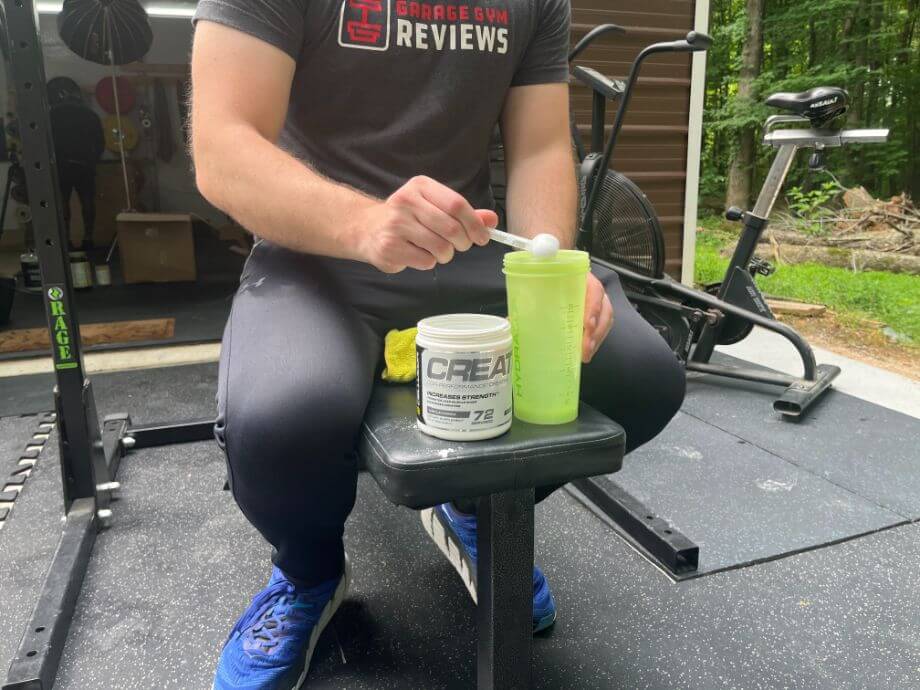Curious about creatine supplements? You’ve likely heard about their benefits for muscle growth and exercise performance. But have you ever wondered, ‘does creatine expire?’ As a fitness enthusiast, understanding the shelf life of your supplements is crucial to maximizing their effectiveness.

Whether you’re a seasoned athlete or just starting your fitness journey, knowing how to spot expired creatine can make a difference in your training results. So, let’s find out if that tub of powder in your pantry is still good to go.
Contents
Does Creatine Expire?
Yes, creatine, like most dietary supplements, does expire. The expiration date is typically printed on the container by the manufacturer and indicates the timeframe within which the product is expected to maintain its highest level of quality and potency. After this date, creatine might not be as effective as it was when it was fresh, although it may not necessarily be harmful to consume.
Factors Affecting Creatine’s Shelf Life:
-
Storage Conditions: How you store creatine can impact its longevity. Keeping it in a cool, dry place away from direct sunlight can help preserve its effectiveness for a longer period. Exposure to moisture can cause creatine to degrade faster, potentially leading to clumping and reduced effectiveness.
-
Packaging: The type of packaging can also affect how well creatine maintains its potency over time. Airtight, opaque containers are best for minimizing exposure to air and light, which can degrade creatine.
-
Form of Creatine: Different forms of creatine (e.g., creatine monohydrate, creatine ethyl ester, creatine hydrochloride) may have slightly different shelf lives based on their stability and how they’re processed and packaged.
How Long Does Creatine Last?
Creatine supplements typically have an expiration date listed on the label, but that doesn’t necessarily mean the creatine goes bad on that exact day. Here’s a breakdown of how long creatine can last:

Expiry Date vs. Potency:
The expiration date on a creatine supplement indicates the manufacturer’s guarantee of its quality and potency. It doesn’t necessarily mean the creatine becomes unsafe to consume after that date.
Stability of Creatine Monohydrate:
Creatine monohydrate, the most common and researched form of creatine, is a relatively stable compound. Studies have shown that it can maintain its potency for at least 3 years even at high storage temperatures (around 140°F or 60°C).
Impact of Storage:
Proper storage conditions can significantly extend the usability of creatine. Here’s what to consider for optimal storage:
- Cool and dry place: Avoid storing creatine in hot or humid environments like bathrooms.
- Airtight container: Keep the creatine container tightly sealed to prevent moisture absorption, which can accelerate degradation.
- Out of direct sunlight: Sunlight can potentially degrade creatine over time.
Signs of Creatine Degradation:
Creatine monohydrate, in its pure form, is a white, odorless powder. If your creatine develops a color or a noticeable odor, it’s best to discard it.
Overall Recommendations:
While creatine monohydrate can likely remain potent for a few years beyond the expiry date under ideal storage conditions, it’s generally recommended to:
- Purchase creatine with a validity period that allows you to consume it comfortably within a reasonable timeframe.
- If you have unopened creatine that’s past its expiry date but has been stored properly, it might still be okay to use. However, the potency might be slightly diminished.
Can Taking Expired Creatine Make You Sick?
When it comes to expired creatine, the main concern is its potential impact on your health. While consuming creatine past its expiration date is unlikely to make you sick, there are a few things to keep in mind to ensure you’re still getting the benefits you seek. It’s important to pay attention to any changes in color, smell, or taste of your creatine, as these could indicate a problem.

Changes like clumping, unusual odors, or off-putting tastes might suggest that bacteria or molds have contaminated the creatine. This can occur due to factors like exposure to excessive moisture or being stored in an unsealed container. While these signs may not always lead to illness, it’s a good practice to discard any creatine that shows such symptoms.
To maintain optimal potency and safety, ensure proper storage of your creatine supplements. Keep them in a cool, dry place away from moisture and humidity. Additionally, always seal the container tightly after use to prevent contamination.
How to Store Creatine?
When it comes to storing creatine, a few simple steps can help maintain its quality and effectiveness for longer periods:
- Keep creatine in a cool, dry place: Avoid moisture and heat as they can degrade the product.
- Seal the container tightly: Prevent air exposure to maintain freshness.
- Avoid direct sunlight: Store in a dark place to preserve its potency.
- Use a clean, dry scoop: Moisture can lead to clumping and decrease the shelf life.
- Check for signs of contamination: Discoloration, unusual smells, or strange flavors may indicate spoilage.
By following these storage tips, you can ensure that your creatine remains safe and effective for your fitness goals.
Frequently Asked Questions
How should I store my creatine to maintain its quality?
It’s essential to store creatine in a cool, dry place, seal the container tightly to prevent air exposure, avoid direct sunlight, use a clean, dry scoop to prevent clumping and check for signs of contamination like discoloration, unusual smells, or strange flavors.
What is the shelf life of creatine and how long does it last once opened?
Creatine has a long shelf life when stored properly for several years. Once opened, it typically lasts up to six months to a year before losing its potency.
Can creatine make you look bloated?
Some users may experience temporary bloating, often referred to as “creatine bloat,” especially in the face during the initial days of supplementation.
Is creatine safe for kidney health and at what dosage?
Studies indicate that creatine doses of up to 10g/day are safe for kidney health in individuals with healthy kidneys, with only a slight increase in creatinine levels detected.
Should creatine supplements have a fishy smell?
No, creatine monohydrate should not have a fishy smell. If your creatine supplement develops such an odor, it is recommended to discard it due to potential health risks or reduced effectiveness.

Hello, I’m Ravindra. Over the years, I’ve immersed myself deeply into the world of fitness and health, transforming both my body and mind. Writing has allowed me to share my journey, insights, and expertise with those just starting out and seasoned fitness enthusiasts alike. Beyond just routines and diets, I believe in inspiring others to adopt a holistic approach to well-being.
